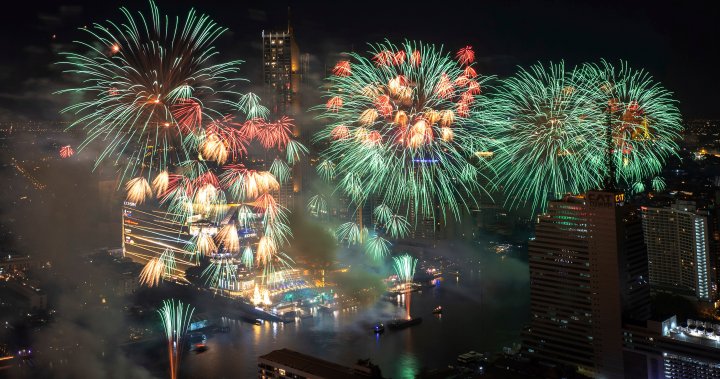
Countries around world celebrate New Year’s Eve while hoping for brighter 2022
Global News
New Year's Eve, which used to be celebrated globally with a free-spirited wildness, felt instead like a case of deja vu thanks to the fast-spreading Omicron variant.
Sorrow for the dead and dying, fear of more infections to come and hopes for an end to the COVID-19 pandemic were — again — the bittersweet cocktail with which the world said good riddance to 2021 and ushered in 2022.
New Year’s Eve, which used to be celebrated globally with a free-spirited wildness, felt instead like a case of deja vu, with the fast-spreading omicron variant again filing hospitals.
At the La Timone hospital in the southern French city of Marseille, Dr. Fouad Bouzana could only sigh when asked what 2022 might bring.
“It’s starting to become exhausting,” he said, “because the waves come one after another.”
The mostly muted New Year’s Eve celebrations around the world ushered in the fourth calendar year framed by the global pandemic. More than 285 million people have been infected by the coronavirus worldwide since late 2019 and more than 5 million have died.
In Paris, officials canceled the fireworks amid surging infections and reintroduced mandatory mask-wearing outdoors, an obligation followed by the majority of people who milled about on the Champs-Elysees as the final hours of 2021 ticked away.
In Berlin, police urged people not to gather near the Brandenburg Gate, where a concert was staged without a live audience. In Madrid, authorities allowed only 7,000 people into the city’s Puerta del Sol downtown square, a venue traditionally hosting some 20,000 revelers.
In the United States, officials took a mixed approach to the year-end revelry: nixing the audience at a countdown concert in Los Angeles, scaling it back in New York yet going full speed ahead in Las Vegas, where 300,000 people were expected for a fireworks show on the strip.











